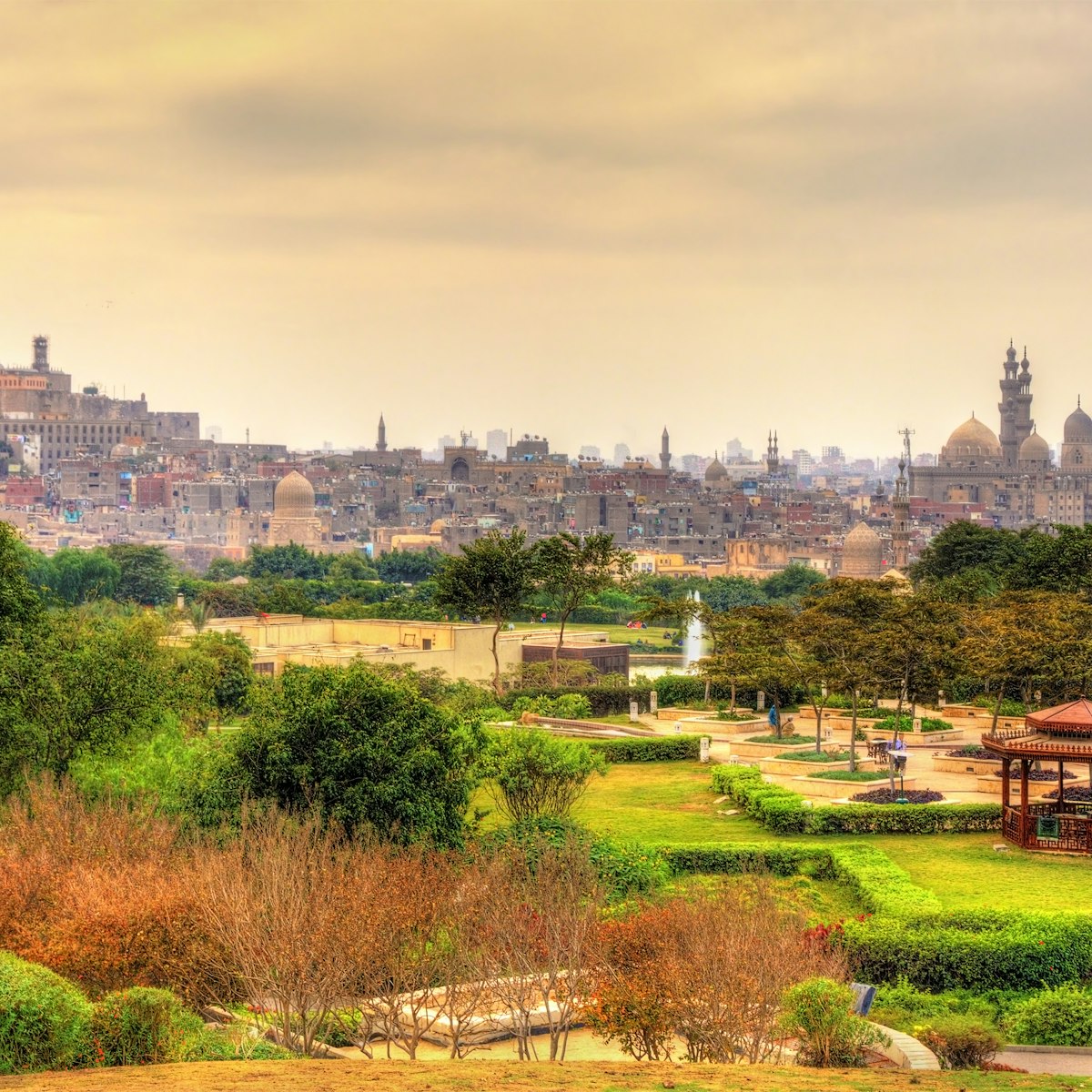The city’s oldest intact, functioning Islamic monument is easily identified by its high walls topped with neat crenulations that resemble a string of paper dolls. It was built between AD 876 and 879 by Ibn Tulun, who was sent to rule the outpost of Al Fustat in the 9th century by the Abbasid caliph of Baghdad. Its geometric simplicity is part of its beauty and is best appreciated from the top of the minaret.
The mosque covers 2.5 hectares, large enough for the whole community of Al Fustat to assemble for Friday prayers. An outer moatlike courtyard, originally created to keep the secular city at a distance, was at one time filled with shops and stalls. Ibn Tulun drew inspiration from his homeland, particularly the ancient Mosque of Samarra (Iraq), on which the spiral minaret is modelled, as well as the use of brick. The minaret is accessed from the moat. He also added some innovations of his own: according to architectural historians, this is the first structure to use the pointed arch, a good 200 years before the European Gothic arch.
Note that sometimes one of the caretakers here can be overly forceful in asking for donations.







